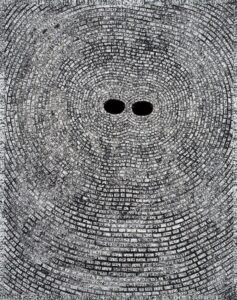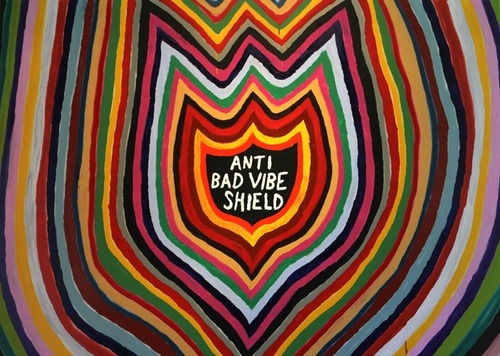Chapter 9 of potential hindrances to our creative development continued…
Before wrapping up this chapter, I’d like to bundle some loose threads concerning resistance and non-resistance around the encouragement/discouragement and opinions of others. We all know there can be times when someone’s words are a blessing or a boost and when they can be disheartening or crushing, but are we aware of the power we pay them?
I was once totally struck by something American author Carlos Castaneda repeated from Don Juan Matus:
“Self-importance is man’s greatest enemy. What weakens him is feeling offended by the deeds and misdeeds of his fellow men. Self-importance requires that one spend most of one’s life offended by something or someone.”
It may seem paradoxical but by admitting to myself that I’m not so important or impressive was an incredible relief. You’d think it would be a self-pity/victim/powerless/destructive thing to accept but it’s actually totally empowering— because it’s not that I really thought I was special but that I was trying to be. I was fighting to be something (or better than such and such) and I was wrestling against the opinions and ideas of others who may have seemed in opposition, discouraging, or oppressive. It was like sandbagging myself in a bunch of drama. Castenada also said:
“To seek freedom is the only driving force I know. Freedom to fly off into that infinity out there. Freedom to dissolve; to lift off; to be like the flame of a candle, which, in spite of being up against the light of a billion stars, remains intact, because it never pretended to be more than what it is: a mere candle.”
Whenever I hold this ‘mere candle’ attitude, it provides an almost invincible feeling—I’m guessing because all of my energy and attention is now given to what’s directly in front of me or what I need to face in myself (what I am for and not what I’m against). I’m not using up energy by fielding or shielding what other people might be thinking. From this perspective, I’m never devastated by what someone says about me or something I’ve made nor am I dependent on praise or awards for validation. Resistance around praise or encouragement can show up when we develop a fear to do something new that would jeopardize our past success (like, we keep painting the same way because that’s what’s been selling or what other people have approved of even though it’s become boring or a chore). Poet John Berryman once told his student, W.S. Merwin:
“I would recommend the cultivation of extreme indifference to both praise and blame because praise will lead you to vanity, and blame will lead you to self-pity, and both are bad for writers.”
Merwin adds to this in his own poem, Berryman:
[…]
I had hardly begun to read
I asked how can you ever be sure
that what you write is really
any good at all and he said you can’t
you can’t you can never be sure
you die without knowing
whether anything you wrote was any good
if you have to be sure don’t write
Once again, when I embrace the attitude that I don’t need to be sure— that I can allow my doubts to just hang out, then I can actually enjoy myself or be at peace. Obviously, none of this is to say that we have to dismiss or be deaf-blind to all guidance coming at us (I am clearly offering and sharing guidance that I’ve received from others who also received it). It’s about discerning whether an offering will lead toward expansion. Here’s an example of taking feedback that offers momentum that painter/sculptor Jack Whitten shared in Notes from the Woodshed:

Jack Whitten, Self Portrait: Entrainment (2008)
© The Estate of Jack Whitten
“After a devastating critique from one of my painting professors at Cooper Union who claimed that I spent too much time on “accidents,” I ran into Bill de Kooning on University Place on my way to the Cedar to chill out, and as usual his “Hi kid, how are you doing?” I told him what had happened. Bill said, “You tell that motherfucker that there is no such thing as accidents in painting!” With that said, and a couple of beers at the Cedar bar, I felt as if I could whip the world!”
The thing about someone shooting us their opinion about what we’re doing wrong is that it can kill momentum and leave us in the room of ‘what it isn’t’. Ever noticed how opinions don’t usually go anywhere?— how they’re often one-sided conclusions that are tangled up in self-importance? They’re like a sheet draped over a bird cage that just mutes us and keeps us contained. Mozart was allegedly told by Emperor Joseph II that his opera had too many notes— what was he supposed to do with that? Ask which ones he should take out?
I realize that Oscar Wilde has woven himself into this chapter quite frequently but no matter where I look, his insights pop up and align here. This one is from his list of A Few Maxims for the Instruction of the Over-Educated: “Public opinion exists where there are no ideas.” Imagine if we could put an ‘ideas only’ filter on our social media accounts or our work meetings. We may think we are particularly burdened in our digital landscape but I bet it’s always been a challenge. Even the brilliant George Spencer-Brown, best known for his Laws of Form, wasn’t able to escape:
“To arrive at the simplest truth, as Newton knew and practiced, requires years of contemplation. Not activity. Not reasoning. Not calculating. Not busy behaviour of any kind. Not reading. Not talking. Not making any effort. Not thinking. Simply bearing in mind what it is one needs to know. And yet, those with the courage to tread this path to real discovery are not only offered practically no guidance on how to do so, they are actively discouraged and have to set about in secret, pretending meanwhile to be diligently engaged in the frantic diversions and to conform with the deadening personal opinions which are being continually thrust upon them!”
I may have given the impression that I have risen above opinions— oh, hell no. It’s just that when opinions are getting to me, I remind myself that creative expression is turned toward ideas— new possibility and connectedness. I basically just give myself permission to ignore any feedback that bogs me down and do my best to direct my attention to anything that offers momentum (that way I don’t waste energy on shielding myself). In my art practice I find this fairly easy to achieve. But when we’re talking about the many dimensions of daily life… that’s a whole other ballgame.
“I never approve, or disapprove, of anything now. It is an absurd attitude to take towards life. We are not sent into the world to air our moral prejudices. I never take any notice of what common people say,
and I never interfere with what charming people do.”
[TITLE IMAGE: Anti Bad Vibe Shield. Ozzie Wright.]
*Disclaimer: No copyright infringement intended. I do my best to track down original sources. All rights and credits reserved to respective owner(s). Email me for credits/removal.
